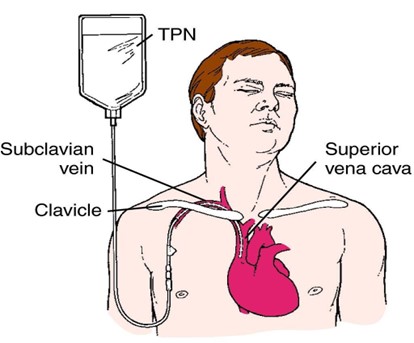A nurse is providing teaching to a client who has a history of diabetes mellitus and a new prescription for hydrochlorothiazide to treat uncontrolled hypertension. Which of the following information should the nurse include in the teaching?
"Blood glucose monitoring is likely to be inaccurate while taking hydrochlorothiazide
"You might need to decrease your insulin dosage while taking hydrochlorothiazide."
Hydrochlorothiazide therapy can elevate blood glucose levels in clients who have diabetes
Reducing sodium in your die whim taking your control your blood glucose."
The Correct Answer is C
The nurse should include in the teaching that hydrochlorothiazide therapy can elevate blood glucose levels in clients who have diabetes. Hydrochlorothiazide is a diuretic commonly used to treat hypertension (high blood pressure). While it is effective in reducing blood pressure, it can sometimes cause adverse effects on blood glucose levels, particularly in individuals with diabetes mellitus.
Hydrochlorothiazide can cause an increase in blood glucose levels by reducing insulin sensitivity, leading to potential hyperglycemia (high blood sugar) in some individuals. Clients with diabetes should closely monitor their blood glucose levels while taking hydrochlorothiazide and inform their healthcare provider if they notice significant changes.
Let's go through the other options:
A. "Blood glucose monitoring is likely to be inaccurate while taking hydrochlorothiazide": This statement is not accurate. Hydrochlorothiazide does not directly affect the accuracy of blood glucose monitoring. However, it is essential for clients with diabetes to be aware of the potential impact of hydrochlorothiazide on their blood glucose levels.
B. "You might need to decrease your insulin dosage while taking hydrochlorothiazide": Hydrochlorothiazide can potentially elevate blood glucose levels, which may require adjustments in diabetes management, including insulin dosage. However, it is not accurate to state that all clients will need to decrease their insulin dosage while taking hydrochlorothiazide. Each client's response to the medication may vary, and adjustments to diabetes medications should be made under the guidance of their healthcare provider based on individual blood glucose monitoring.
D. "Reducing sodium in your diet can help control your blood glucose while taking hydrochlorothiazide": While reducing sodium in the diet is generally a beneficial recommendation for individuals with hypertension, it is not directly related to controlling blood glucose levels in clients with diabetes. The primary focus for individuals with diabetes taking hydrochlorothiazide should be on monitoring blood glucose levels and working with their healthcare provider to manage any changes related to the medication.
Nursing Test Bank
Naxlex Comprehensive Predictor Exams
Related Questions
Correct Answer is B
Explanation
When caring for a client receiving a continuous infusion of total parenteral nutrition (TPN), the nurse should implement the intervention of checking the client's blood glucose level regularly. TPN is a highly concentrated intravenous nutrition solution containing glucose, amino acids, lipids, vitamins, and minerals, and it is used to provide complete nutrition when the client cannot take oral nutrition.
Monitoring blood glucose levels regularly is essential because TPN is rich in glucose, which can significantly affect the client's blood sugar levels. Hyperglycemia (high blood sugar) is a potential complication of TPN infusion. Regular blood glucose monitoring allows the nurse to detect and address any changes in blood sugar levels promptly and to adjust the TPN infusion rate or administer insulin, if necessary, to maintain the client's blood sugar within the target range.
Let's go through the other options:
A. Change the TPN infusion tubing once every 3 days: While changing the TPN infusion tubing regularly is a good practice to maintain asepsis and prevent infection, it is not the priority intervention in this situation. Regularly checking the client's blood glucose level is more crucial to monitor the effects of TPN on blood sugar levels.
C. Insert the peripheral IV catheter for administration: Total parenteral nutrition is a hypertonic solution that can cause irritation and damage to peripheral veins. It is usually administered through a central venous catheter (CVC) placed in a large vein, such as the subclavian or jugular vein. Inserting a peripheral IV catheter for TPN administration is not recommended due to the risk of vein damage and thrombosis.
D. Monitor the client's weight every 3 days: Monitoring the client's weight is an important part of assessing their nutritional status and fluid balance. However, the priority intervention for a client receiving TPN is checking their blood glucose level regularly, as hyperglycemia is a common and significant concern in TPN administration.

Correct Answer is C
Explanation
Flumazenil is the antidote for diazepam, which is a benzodiazepine. Flumazenil is a selective antagonist that can reverse the sedative effects of benzodiazepines and is commonly used in cases of benzodiazepine overdose or to reverse sedation after procedures.
Naloxone (A) is the antidote for opioid overdose and would not be appropriate for reversing the effects of diazepam.
Atropine (B) is an anticholinergic medication used to increase heart rate and is not specific to the reversal of diazepam sedation.

Neostigmine (D) is a cholinesterase inhibitor used to reverse the effects of non-depolarizing neuromuscular blocking agents and is not indicated for reversing the effects of diazepam.
Whether you are a student looking to ace your exams or a practicing nurse seeking to enhance your expertise , our nursing education contents will empower you with the confidence and competence to make a difference in the lives of patients and become a respected leader in the healthcare field.
Visit Naxlex, invest in your future and unlock endless possibilities with our unparalleled nursing education contents today
Report Wrong Answer on the Current Question
Do you disagree with the answer? If yes, what is your expected answer? Explain.
Kindly be descriptive with the issue you are facing.
